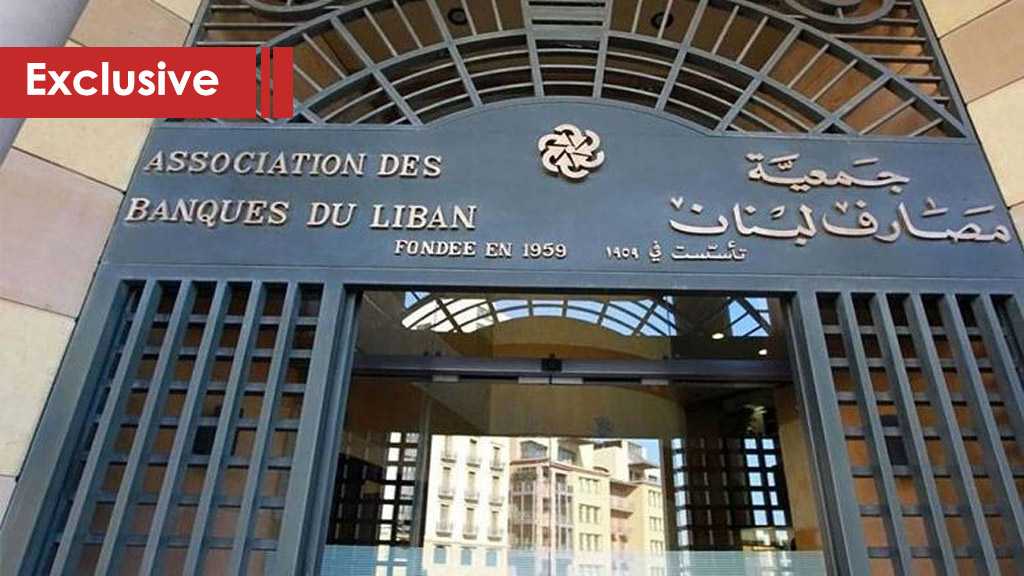Lebanese Students Abroad Tell Al-Ahed about Their Suffering, How the Banks Wronged Them

By Fatima Salami
Once the file on Lebanese students abroad is opened, one gets a clear picture of their suffering, which is only being exacerbated by the coronavirus pandemic.
They endured hardship due to unfair policies by the banks. Thousands of students studying abroad became victims of double standard monetary and fiscal policies.
The blocking of transfers left many of them living with the constant concern of running out of money. Before the Association of Banks in Lebanon retracted this unfair decision and announced its commitment to transfer the appropriate amounts to the students, some of them couldn’t even pay for housing.
But transfers are not the only problem. The disrupted dollar exchange rates constitute another problem for the families of the students. These students found themselves facing a difficult situation created by the crippling monetary policy of the Central Bank of Lebanon, which has always been the strong bulwark of banks. In addition, there is the manipulation of the dollar exchange rate that has many negative repercussions on the livelihood of these students.
Securing money for housing and food allowances was thus their main source of anxiety.
Al-Ahed learned about the dire living conditions that Lebanese students were enduring in some countries. The students are in this situation because of the poor approach that banks took over the years. It even reached a point where banks gave the depositors their hard-earned cash in installments and resorted to all forms of capital controls under the pretext of maintaining liquidity at home. On the other hand, billions of dollars were smuggled to politicians and other influential figures as concerned authorities did nothing to stop these transfers.
Ukraine: 80% of Lebanese students are suffering
When asked about the problems that students face abroad, Maher Obaid doesn’t know where to begin. Obaid is a student at the Faculty of Pharmacy in Ukraine and he says that the greatest suffering is caused by the manipulation of the dollar exchange rate, which doubled the cost of education abroad.
“The dollar exchange rate reaching 3000 LL placed great burdens on my parents, in addition to the high cost of living. One thousand dollars is about two million and eight hundred Lebanese pounds, which leads me to ask, what will my parents send me and what will be left for them?”
Obaid criticized the policies adopted by the banks, which prevented his father from sending him money. “I was unable to pay rent for two months. And if I can't pay this month’s rent, the landlord will definitely kick me out on the street.”
Talking with Obaid reveals the difficult conditions that 80% of students in Ukraine are currently grappling with.
“All this is a result of the banks’ policies. My father used to send me about $800 per month. The last time he was able to send money, he sent $400, half the amount. Last month, he was unable to send money because transfers were blocked.”
Obaid explains that their suffering started at the beginning of the dollar crisis in Lebanon. “Families face difficulty collecting dollars, and if they managed to get it, our purchasing power diminished a lot.”
Obaid sheds light on another point. His father is unable to withdraw his full salary through the bank. This is what makes matters worse. He demands that employees be paid their full salaries. He also demands that Lebanon’s Central Bank and the state pay more attention to the conditions of these students and show compassion towards their families by providing an acceptable dollar exchange rate – it does not necessarily have to be 1515 LL but shouldn’t exceed 1,800 LL.
When asked if he wants to return to Lebanon, Obaid says that would only add additional expenses. “Returning to Lebanon means that my parents will bear the costs of the ticket. The state does not have the means to bring all the Lebanese back home. This also means additional expenses for my self-isolation. In addition, I will have to return to Ukraine to take my exams in June should the situation settle down. This means my parents will pay the cost of the return ticket. Hence, my return to Lebanon will only mean more expenses for my parents.”
He warns with sadness that if the manipulation of the dollar exchange rate continues in this matter, he “will not be able to go to university next year. This is the case for many.”
France: Master’s students are the most affected
The situation in France is not very different from Ukraine. Lebanese students there also suffer from the manipulation of the dollar exchange rate because most of their families get paid in Lebanese pounds.
Dr. Ali Mokh tells Al-Ahed about that suffering. In his view, the bank policies adopted in Lebanon wronged the students, especially in terms of capital controls, which were accompanied by a great manipulation of the dollar exchange rate.
“Previously, a student needed between $ 6,000 to $ 10,000 annually to cover the costs of his studies. Ten thousand dollars was equal to 15 million Lebanese pounds. Today, however, it is about 28 million. This, of course, is in addition to the crisis the parents are facing in terms of being able to obtain dollars.”
Mokh remembers to address issues related to bank transfers, which are only aggravating the suffering of the students, especially amid the coronavirus pandemic.
“Master’s students depend on paid internships during the second semester. This enables them to pay rent and secure their expenses. Due to the coronavirus, many internships were cancelled. Hence, students lost the income they get from paid training. This means that these students are not being paid and are living in difficult conditions, especially since their parents are facing problems transferring money.”
He explains that the Lebanese community in France is seeking to help students.
Mokh’s words are echoed by Hussein Ali Taha, an engineering graduate. Taha points out that the most severe problem students are facing is the issue of payments, especially after paid internships were suspended due to the coronavirus. The student who used to cover his expenses from the allowance he gets, is now without income. He is forced to pay the expenses from his own pocket, which puts him in urgent need of money transfers. This is also the case with students who are studying online, who need cash from Lebanon.
Taha underscores the need to facilitate the return of Lebanese to their home country. The opportunity that was previously given to them was short-lived and the tickets were so expensive with some reaching up to 2000 Euros – a price tag few can afford.
For his part, Dr. Hussein Chour says that the two biggest problems for students in France are money transfers that began before COVID-19 and the suspension of paid internships. The suspension of paid internships also created problems for students looking to continue their PhD and to find work opportunities in the future.
According to Chour, the most affected are master’s students, who make up a large portion of those studying in France. Of course, there are many students who were affected by the issue of obtaining hard currency. These students lost half of the value of their savings.
In addition, Chour highlights another crisis involving students in relatively isolated French cities with small Lebanese communities. Students there face a psychological crisis because there are no Lebanese students beside them, in addition to the financial and educational strain.
Chour concludes by noting that banking policies formed the "source of the scourge" and harmed many students.
A PhD student in chemistry Hassan El-Sabaa agrees that the biggest problems are transfers. But at the same time, he highlights the issue of social solidarity that emerged in France among countrymen. There are many Lebanese people who were quick to provide assistance to students who are gripped by difficult situations.
Italy: We are facing problems with due payments
The suffering of Ahmed Tabikh, a first-year biology student in Italy, is no different from the grief that his fellow students in Ukraine or France face. Tabikh talks about his experience with the banks, noting that before he went to Italy to continue his studies, he placed a bank guarantee in one of the Lebanese banks that deals with the Italian embassy.
“We started suffering as a result of the dollar crisis. We were only allowed to withdraw 200 Euros per week. Not to mention the commissions that students have to pay, which reached 28 Euros per month,” Ahmed says.
Tabikh points out that the 200 Euros is not enough to cover expenses, including rent, bills, food, and transportation.
“At the start of the coronavirus crisis, we were told that we could withdraw the full amount. So, we went to withdraw, but could not. In addition, my parents were unable to secure dollars and transfer the money.”
Tabikh does not express a desire to return to Lebanon, fearing that he might contract the virus. He is committed to self-isolation and taking measures to preserve his safety.
“We are still facing problems regarding due payments. We do not know whether or not they will charge us rent this month,” Tabikh says, hoping that the crisis will be resolved.
Therefore, there are a variety of problems that Lebanese students are experiencing abroad, most of which are due to the unjust policies adopted by the banking sector in Lebanon, including the capital controls used against people’s rights. The hope is that the announcement by the banks, committing to transferring the appropriate funds to Lebanese students, will be the beginning of change in the vicious policy that affected various segments of Lebanese society.




